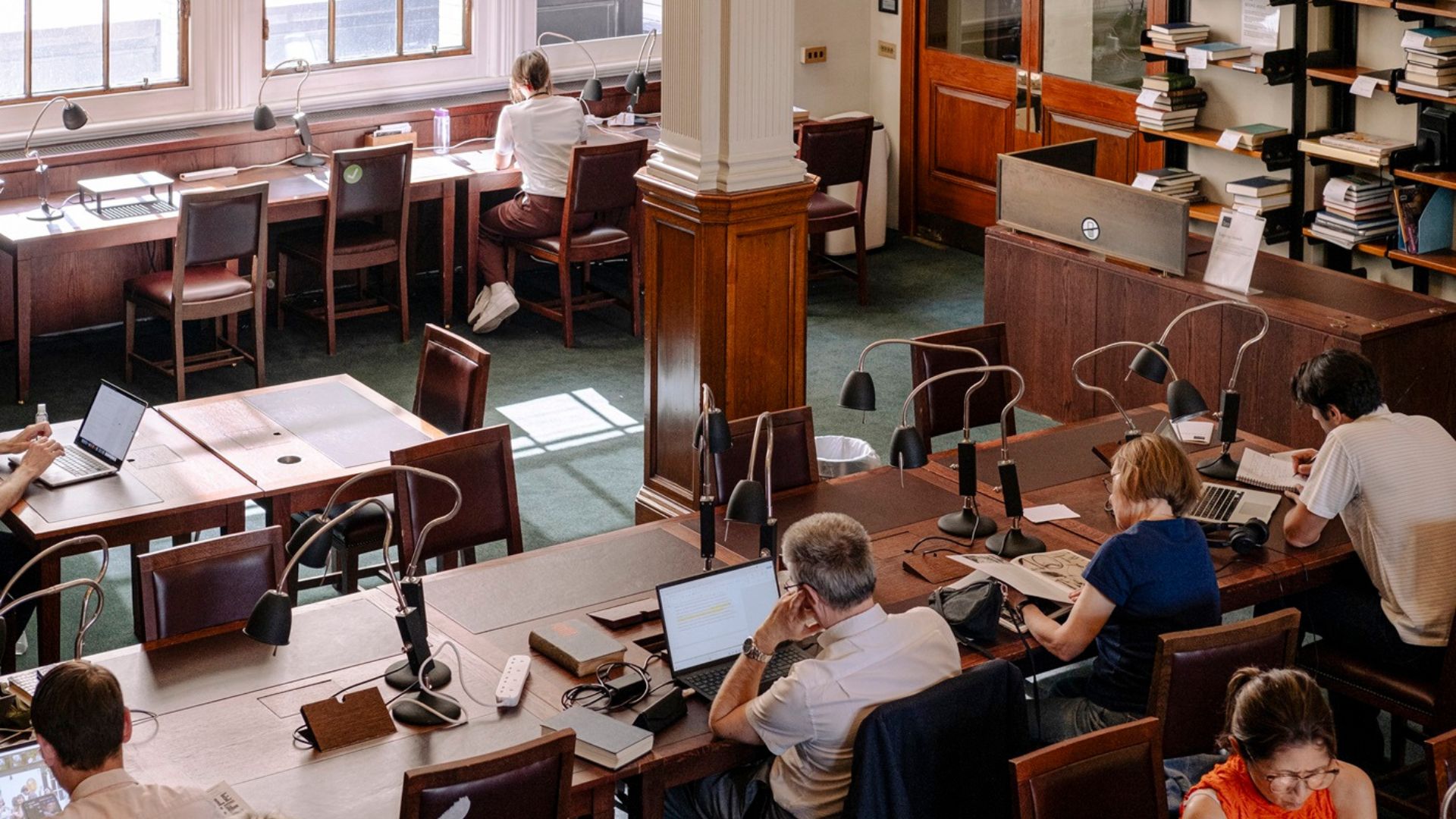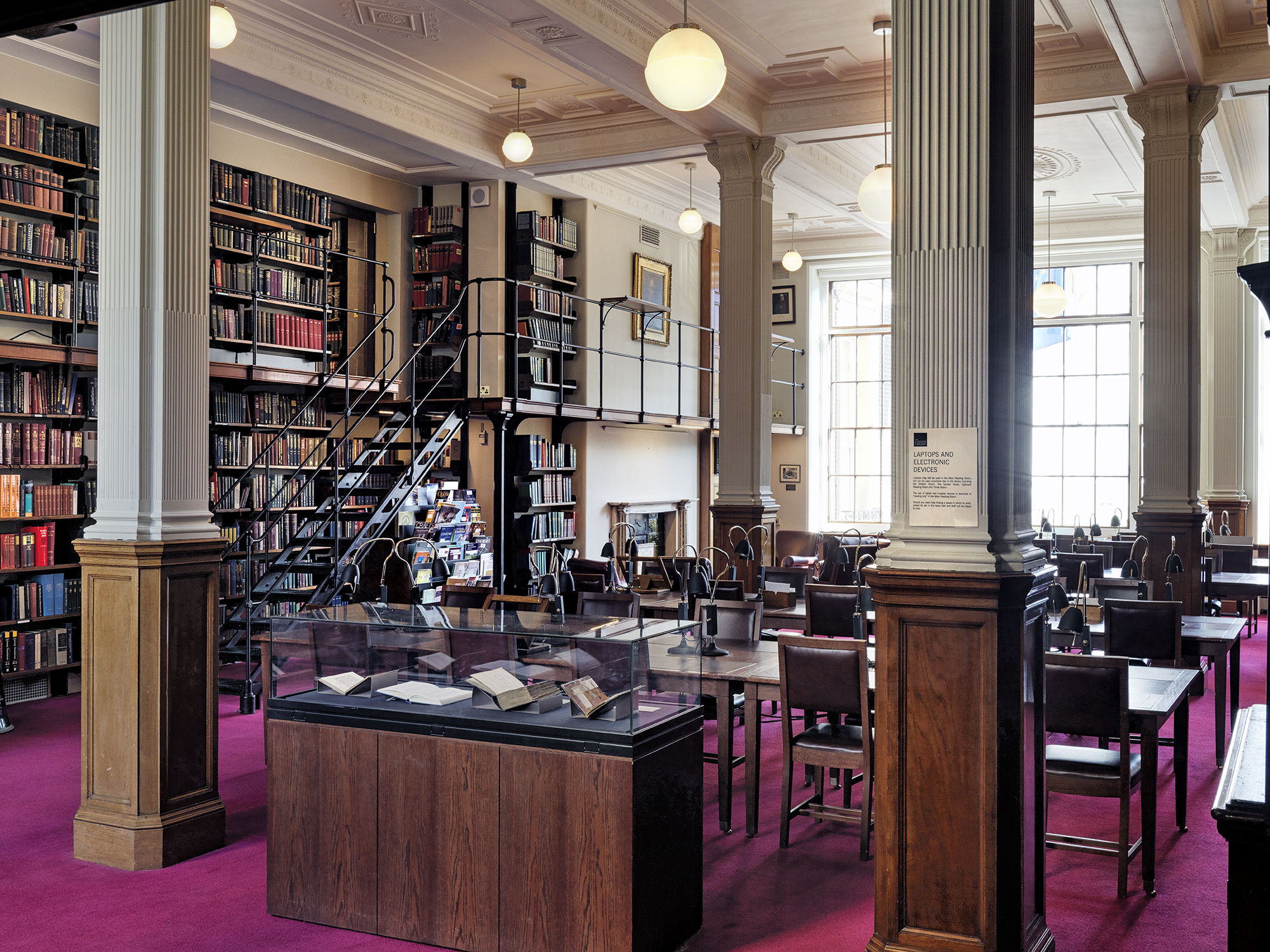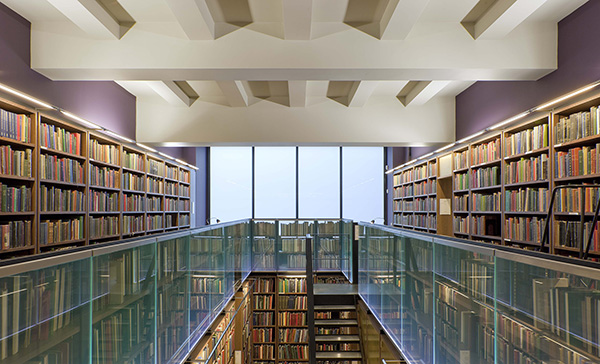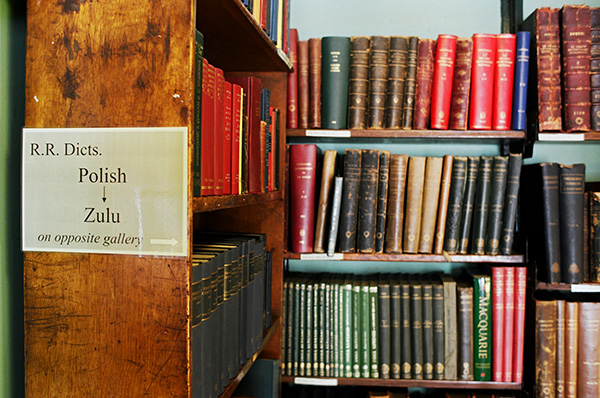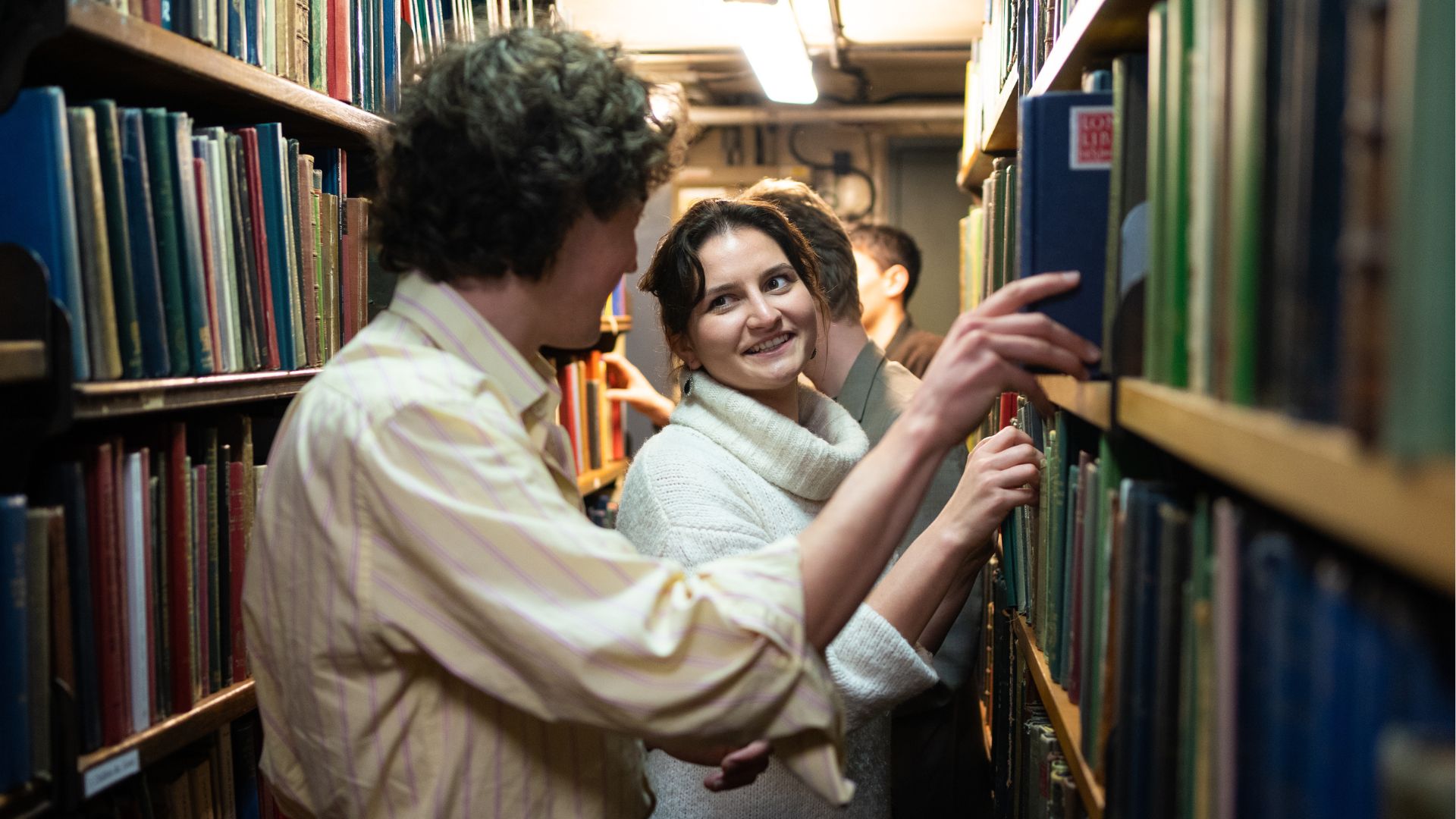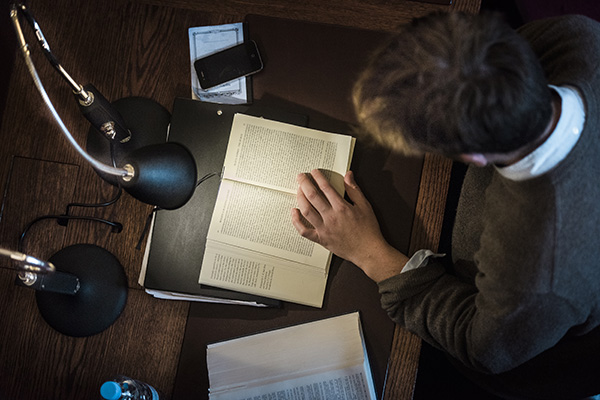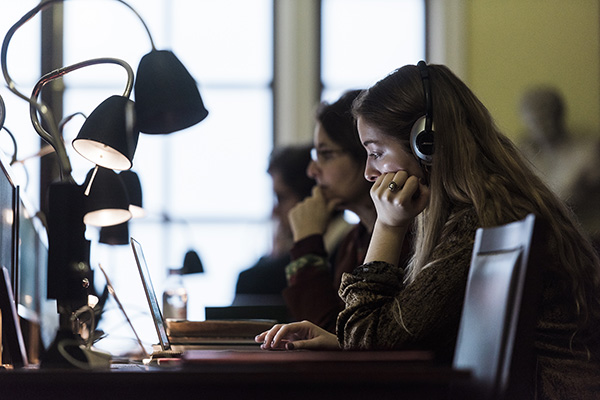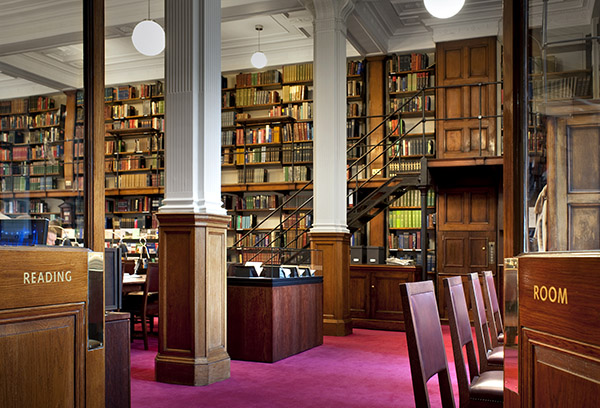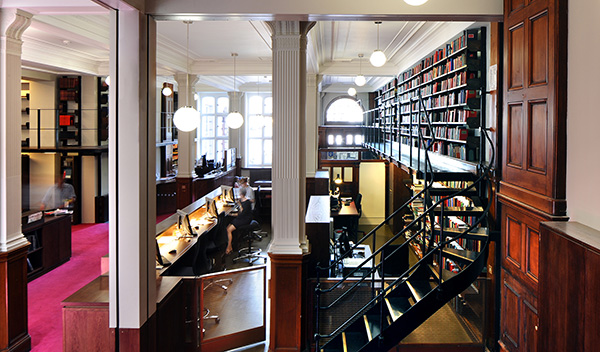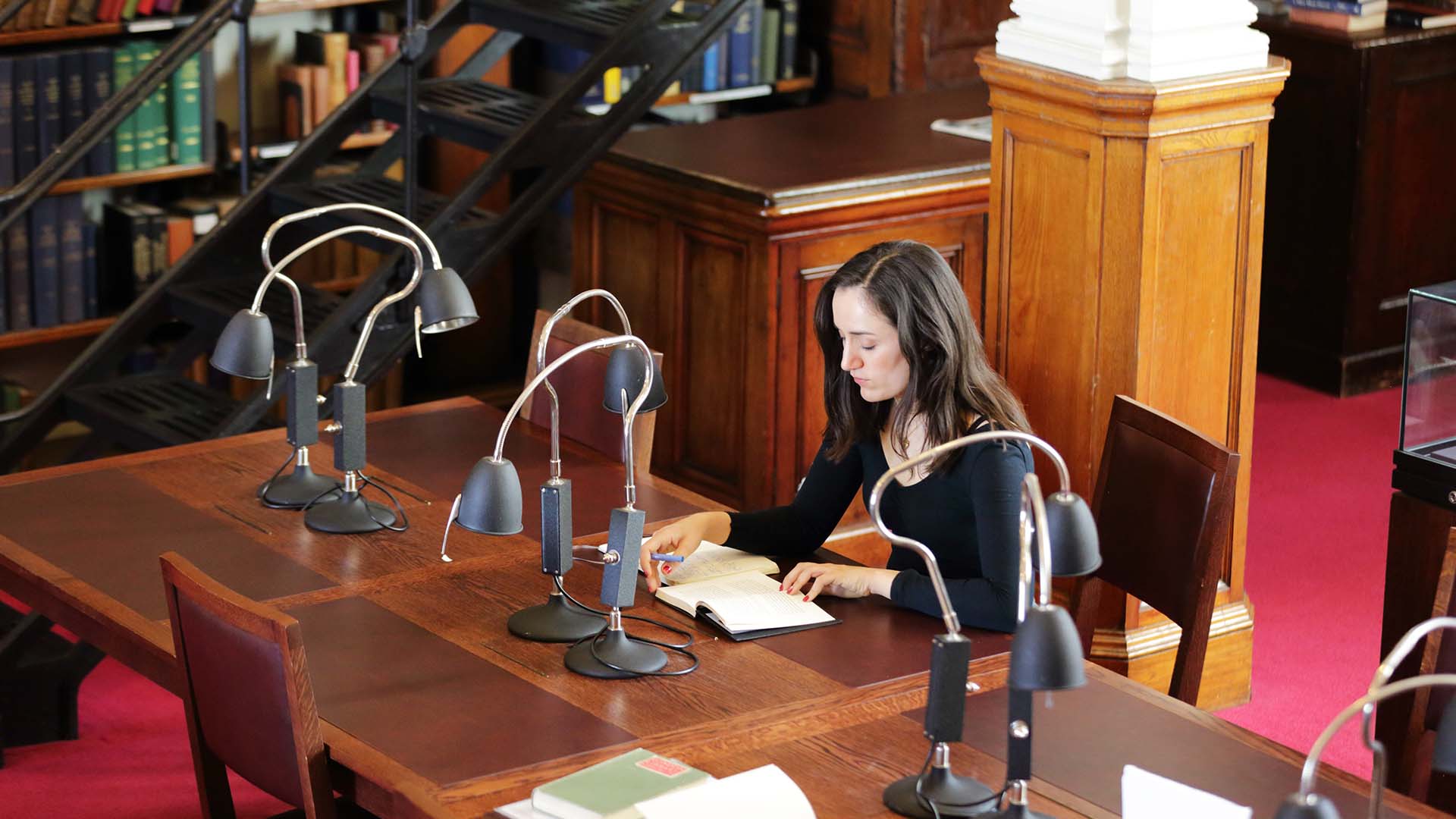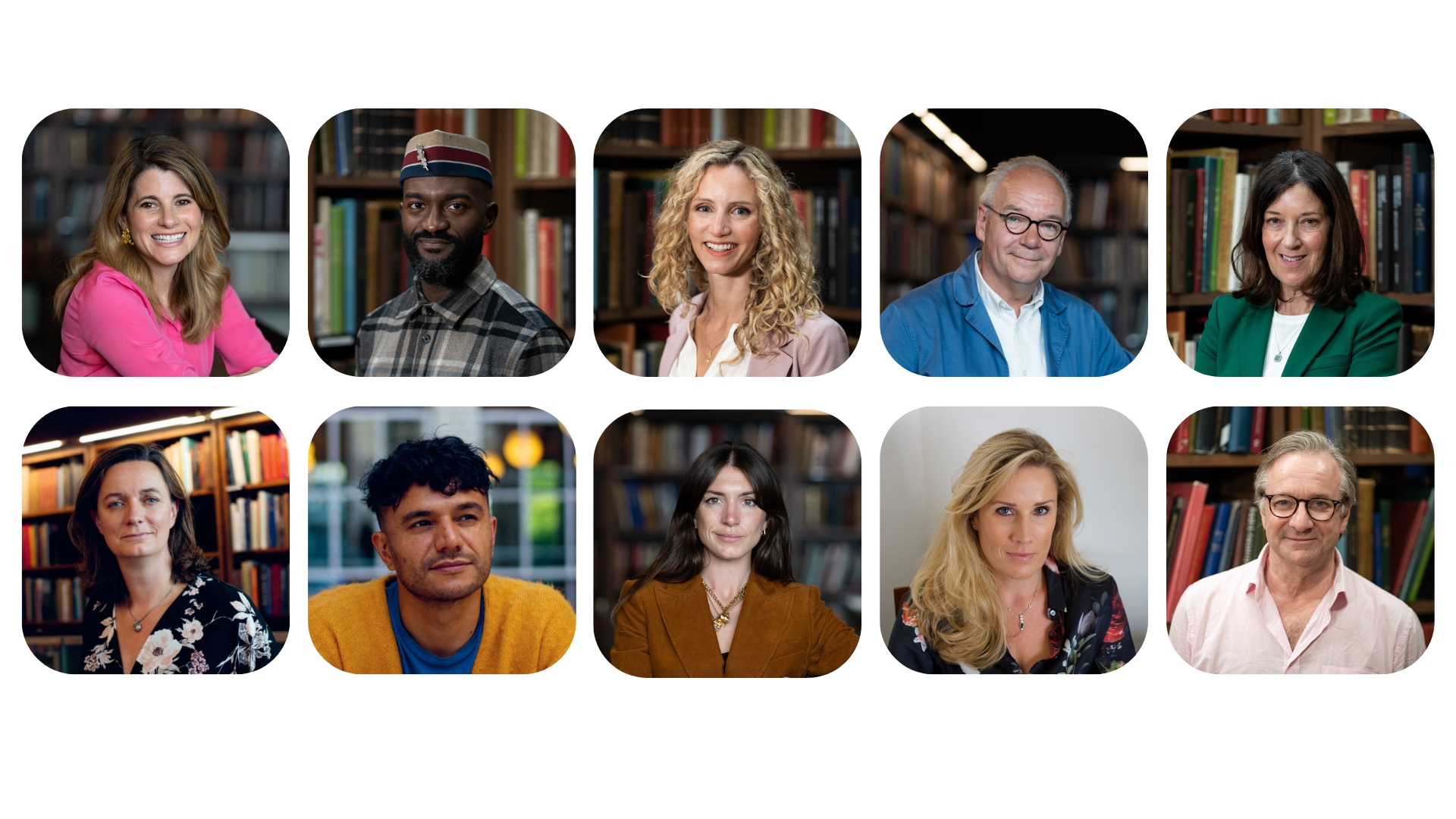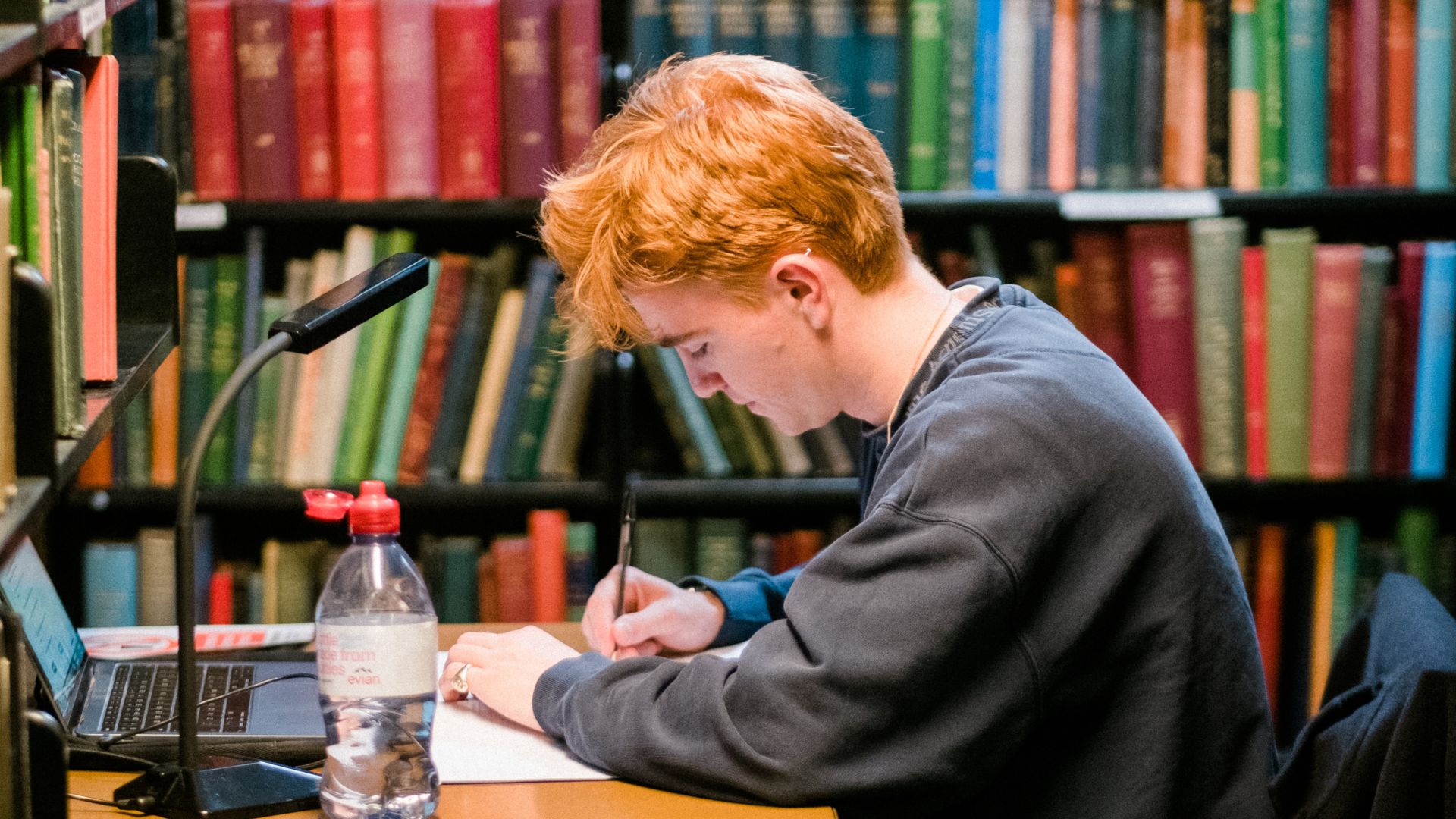Our Charitable Object, Mission, Values and 5 Year Strategic Plan
Charitable Object
The advancement of education, learning and knowledge by the provision and maintenance in London of a library embracing the arts and humanities for all persons desiring to make bona fide use thereof for the said charitable object subject only to the payment of such sums (if any) by way of fees and other charges as are necessary to defray the expenses of the provision and maintenance thereof.
Mission
To inspire, support and promote the creation and sharing of knowledge and ideas through reading, writing and discussion.
Vision to 2030
To establish the Library as “The Home of Literary Inspiration.” We want to be widely recognised as a welcoming, accessible, inspiring, and supportive place for the creation, discovery and enjoyment of literature. We want to further develop our collection, continue to grow our reach and impact, and consolidate our financial sustainability.
Values
We are:
- Inspiring – enthusiastic about sharing knowledge and inspiring and supporting the interests and creativity of others
- Independent – unique, free to think differently and encourage freedom of thought and expression in others
- Welcoming – open, accessible, inclusive, friendly, helpful, supportive, and collaborative
- Excellent – striving for excellence, efficiency and impact in all that we do.
5 Year Strategic Plan (2025-2030) “The Home of Literary Inspiration”
The London Library was founded to share knowledge and inspire the creation of new ideas. Over the last 184 years, it has inspired and supported writers, thinkers, scholars and artists in the creation of some of the world’s most famous books, scripts and ideas that have, in turn, touched the lives of many millions, shaping the intellectual history of the nation and the world.
Just as importantly, the Library has facilitated the personal creativity and intellectual journeys of many tens of thousands of individuals who have benefited from the Library’s rich and uniquely accessible collection, conducive spaces to ready and study, and knowledgeable staff.
Turning to the future, our focus for the next 5 years is to establish the Library as “The Home of Literary Inspiration.” We want to be widely recognised as a welcoming, accessible, inspiring, and supportive place for the creation, discovery and enjoyment of literature. We want to further develop our collection, continue to grow our reach and impact, and consolidate our financial sustainability. To help us achieve these aims, we have set ourselves 7 strategic objectives:
1. Our Collection
To curate, conserve and celebrate a relevant, high-quality, culturally representative and uniquely accessible collection, appropriately balanced between physical books and digital holdings.
We will increase our investment in content across our combined print and digital holdings, delivering new acquisitions that are more responsive to member demand, and are more culturally representative, as well as extending the collections into new areas of interest. This will be supported by the new team of subject-specialist content librarians.
We will develop and deliver new initiatives to promote and celebrate the collection, and we will also increase our efforts to conserve and safely accommodate our expanding collection, including the digitisation of specific elements and the increased use of off-site storage.
2. Our Services and Systems
To provide a high-quality, welcoming and professional service to all, facilitating and enhancing their use, engagement with, and enjoyment of the Library.
We will review and improve systems for the delivery of all aspects of customer service and user experience. This will include the services we provide for members in relation to the collection as well as our services relating to membership joining, induction, renewal, communications and account management.
3. Our Building
To provide an inspiring, welcoming space for literary discovery, creativity and enjoyment.
We will deliver our Building Connections project and continue to improve our existing reading rooms and study spaces, enabling better access to the Library, providing greater opportunities for members to engage with the collection and each other, and ensuring that our facilities for study and refreshment meet members’ needs and expectations.
4. Our Programmes
To extend our programme of events and learning and participation activities, raising awareness, widening access and delivering inspiring, engaging and impactful events.
We will deliver high-quality programmes that celebrate the collection, the Library’s membership (past and present), and provide the opportunity to build connections and community.
We will develop our network of partners, consolidate the success of our Emerging Writers Programme, and extend our events programmes by including more member-focussed events, more digital access and establishing our biennial LitFest as a regular fixture. At the heart of achieving this will be the opening and programming of the new event space.
5. Our Profile
To increase the public awareness and recognition of the Library, especially as the “Home of Literary Inspiration”.
We will produce and deliver a new Membership Growth Strategy, setting out the detailed activities we will undertake to grow our membership base and support our fundraising efforts. We will leverage the profile-raising opportunities provided by our major projects such as “Building Connections”, LitFest, and the Emerging Writers Programme, and make increased use of our ambassadors and advocates for PR opportunities.
6. Our Finances and Fundraising
To consolidate our financial sustainability by growing income from membership, revenue fundraising and other sources, while also raising the capital funds needed to invest in Building Connections.
We aim to grow our membership to 8,500 and deliver an annual operating surplus of c£300k, equivalent to roughly 5% of our operating costs, by 2030. We will effectively articulate the Library’s charitable impact and make a compelling case for support from individuals and grant-making bodies.
7. Our People
To attract, develop and retain the best possible staff and volunteers that we need to deliver our goals, and to ensure that the Library is a welcoming and inclusive place to work and that we live our values.
We will produce and implement a Training and Development Strategy, investing in training at all levels. We will also carry out annual reviews of remuneration and benefits to ensure the Library is fair and competitive against benchmarked comparators.
We will explore the potential for increasing the use of volunteers in the Library.
This plan builds on the success of our previous 6 year plan and continues that approach, including the delivery of the major building project that was previously envisaged but not commenced in earnest.
We recognise that the targets we have set ourselves are challenging. However, by keeping our focus on the core objectives set out in this document, we shall continue to improve our collection, services, building and programme; develop our people; raise our profile; strengthen our financial sustainability; extend our reach and impact; and, in so doing, shall firmly establish the Library as The Home of Literary Inspiration.
Adopt a Book: Campus novels
To celebrate the start of a new academic year, why not Adopt a Book from the campus novel genre? Our stacks are full of novels about the lives of students, professors and their spouses, an ideal gift for the incoming student or returning teacher in your life. You’ll receive a personalised certificate, as well as the adoptee’s name written on a permanent bookplate inside the book.
You might want to consider:
· Philip Roth, The Human Stain
· J. M. Coetzee, Disgrace
· Dorothy L. Sayers, Gaudy Night
· Kingsley Amis, Lucky Jim
· Fleur Jaeggy, Sweet Days of Discipline
· Elif Batuman, The Idiot and Either/Or
· Joshua Cohen, The Netanyahus
· John Williams, Stoner
· David Lodge, Changing Places, Small World and Nice Work
· Brandon Taylor, Real Life
· Mary McCarthy, The Groves of Academe
· Donna Tartt, The Secret History
· Chad Harbach, The Art of Fielding
Adopt a book Find out more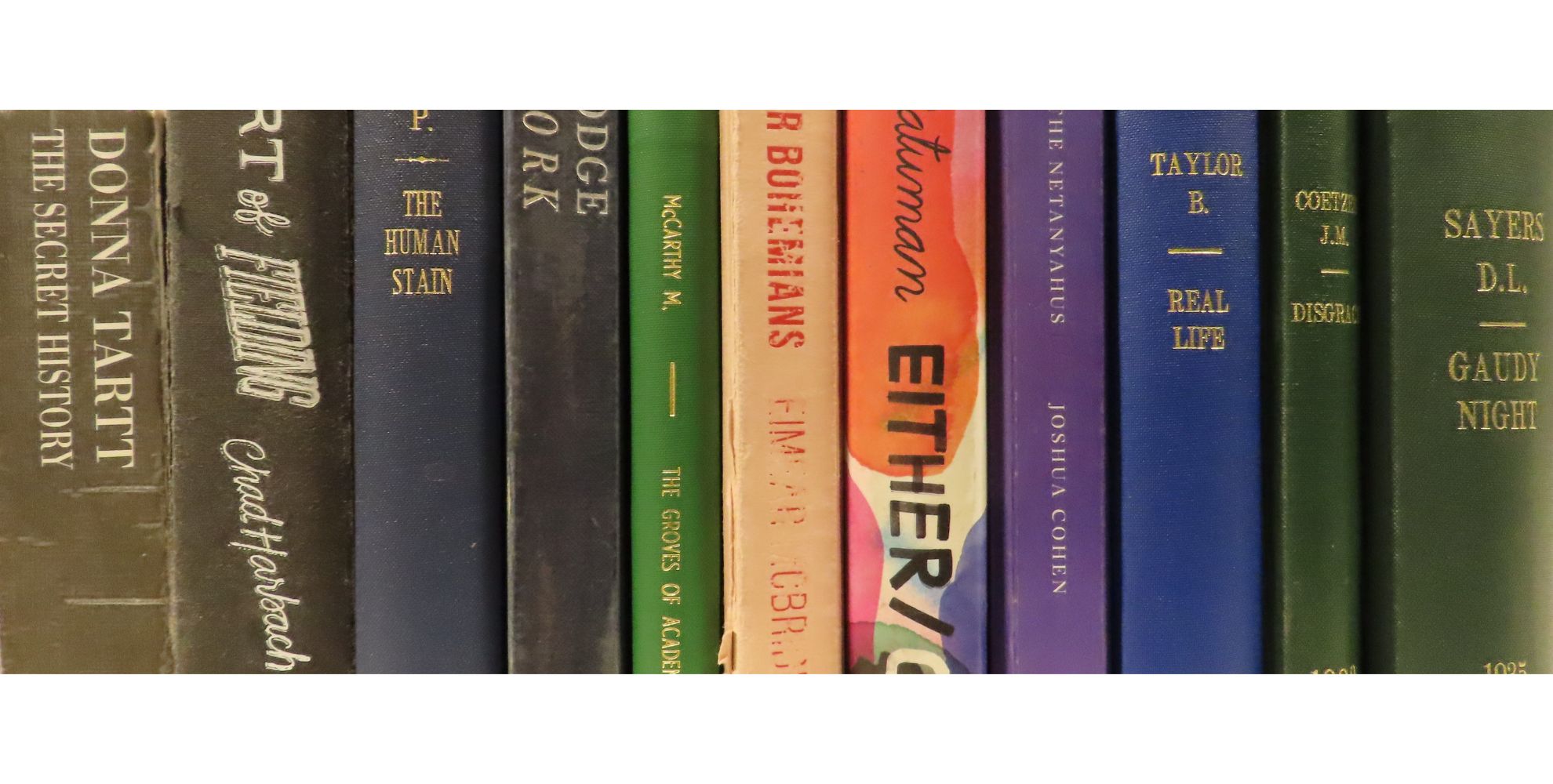 Adopt a Book: Faber & Faber
Adopt a Book: Faber & Faber
Founded 96 years ago in April 1929, Faber & Faber is one of the world’s best-known independent publishers. Published authors include notable Library members T S Eliot (who was both London Library President and an editor at Faber), Kazuo Ishiguro, Edna O’Brien and Harold Pinter.
To celebrate the Library’s connection with Faber & Faber, why not Adopt a Book written by a Faber writer from our collections? You’ll receive a personalised certificate, as well as your name written on a permanent bookplate inside the book.
You might want to consider:
· Plays One by Harold Pinter, including The Birthday Party and A Slight Ache
· The Collected Prose by TS Eliot
· Never Let Me Go by Kazuo Ishiguro
· Leopoldstadt by Tom Stoppard
· Country Girl by Edna O’Brien
· Thinking Again by Jan Morris
Adopt a book Find out more
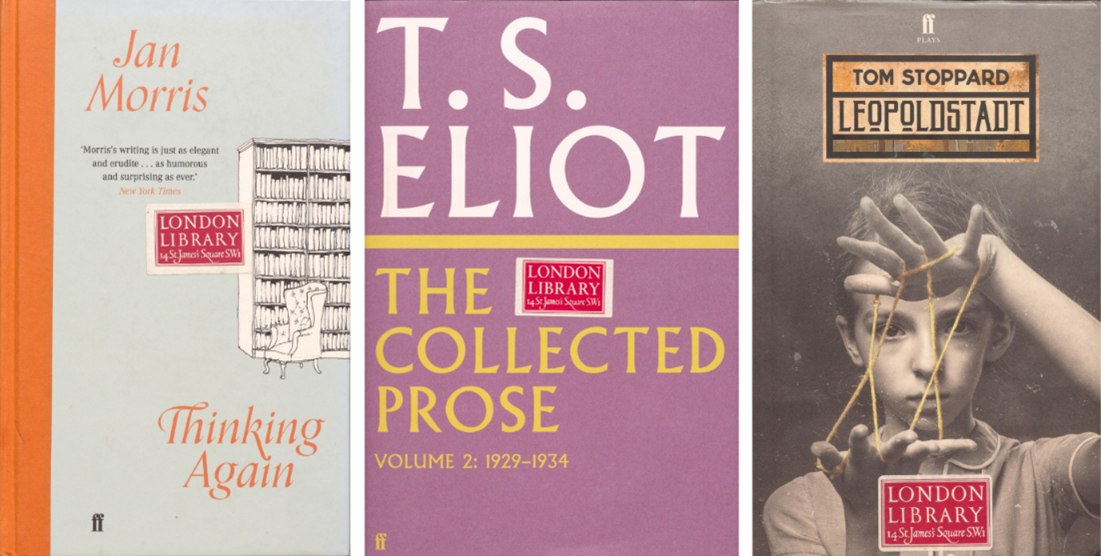
Nothing says 'Merry Christmas' like a London Library Gift Membership.
With an unforgettable building in beautiful St. James's Square, with beautiful rooms and spaces to read, write and think, The London Library is a magical place that has been at the heart of literature for over 180 years.
Give the gift of around one million books to browse and borrow, the opportunity to read and write in stunning atmospheric reading rooms, explore 17 miles of open-access shelves and exclusive access to the Library's online collections including JSTOR, special events programme, and more.
Discover membership options below.
Individual
Experience full access to the collection with full access to the building. Price below for annual Direct Debit.
£575/year
or £52.91/month
£287.50/year
or £26.45/month
Associate
This provides full access to our collection with limited access to the building. Associate Members may use the Library reading rooms and spaces on Mon and Tues, 5-9pm. Wed, Thurs 5-5.30pm, Fri & Sat 9.30am-5.30pm. Price below for annual Direct Debit.
£360/year
or £34.16/month
Remote Access
Experience full access to the collection and the other benefits of membership without use of the Library's reading rooms and spaces. Price below for annual Direct Debit.
£255/year
or £25.41/month
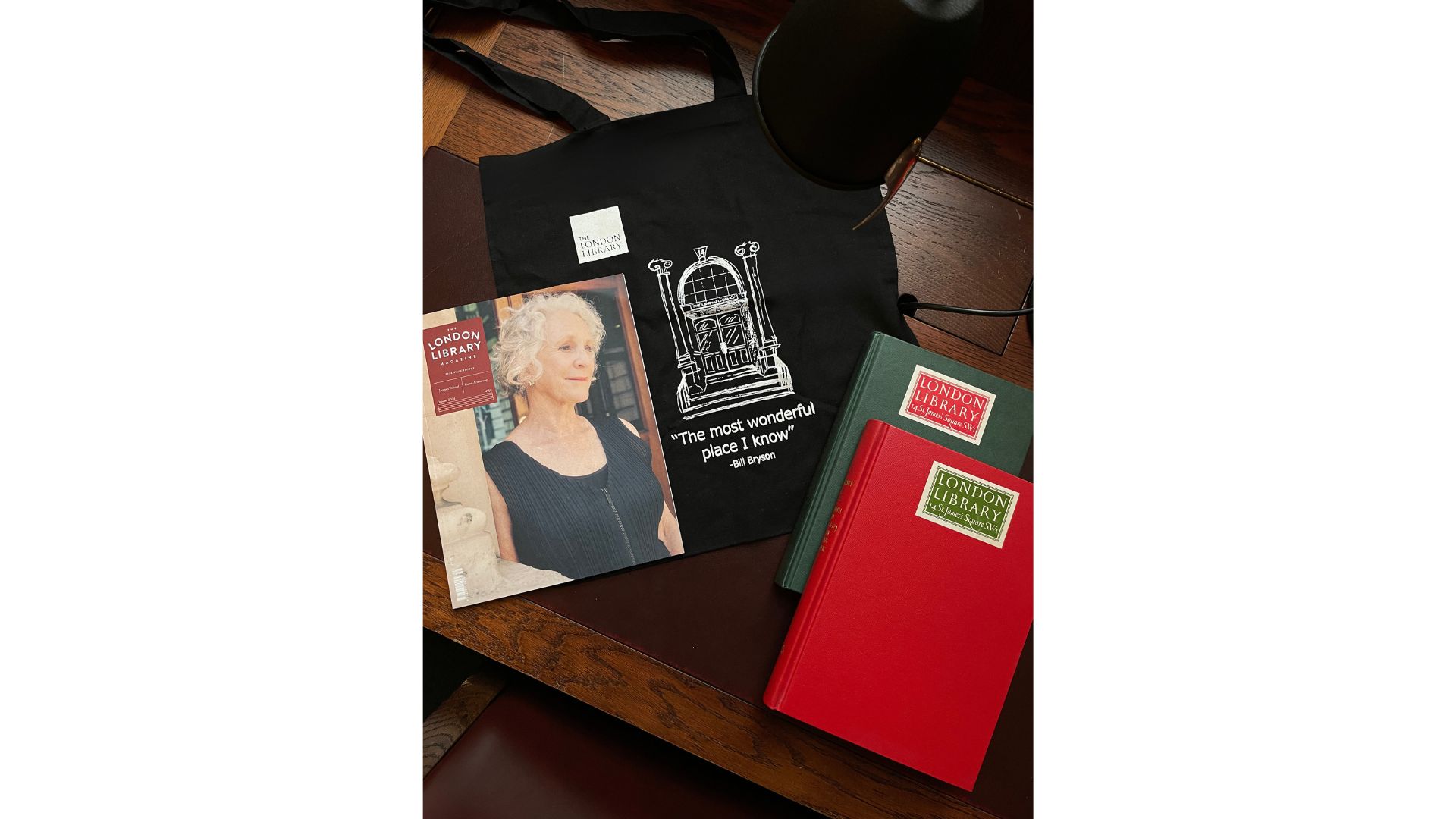
All gift memberships will include a London Library tote bag, London Library magazine, postcard for your gift message and will be gift wrapped with a Christmas ribbon.
Gift Membership offers:
→ An incredible collection of around one million books, almost all of which are available to browse on open shelves and borrow
→ Subscriptions to thousands of journals and periodicals and a wide range of digital resources, including JSTOR, British Newspaper Archive and more
→ Beautiful spaces in which to read and write, open six days a week with late night openings
→ Invitations to special events and discounts on our popular public speaker events
→ Expert staff, always on hand to assist with enquiries
→ A postal loans service anywhere within the UK
The London Library AGM | 26 November 2024
Director of Collections and Library Services Speech Notes
Good evening and it is a pleasure to speak to members present in the room and online this evening, and to many familiar faces.
I would just like to start by saying a bit about myself and my role – as this is a new format for the AGM as Simon said.
I joined the Library in January 2019 taking the newly established role of Director of Collections and Library Services – the first such role on the executive dedicated to the development and management of the Library’s collections and services alone.
I previously worked at Royal Holloway University of London for many years, earlier as a subject librarian, and in my final role as Acting Director overseeing the Library, Archives and the College’s Picture Gallery, and playing a leading role on the development of the £60m Library and Student Services Centre – now known as the Emily Wilding Davison Building.
Having done all that I was particularly attracted to this role by the collections and membership of the Library. The London Library and the vast collections it holds on browsable open access is well known in professional library circles, and having lived through a lot of changes to the way universities were providing access to content for students, and the way collections were being managed and used, I was particularly keen to come to a library where the collections are central to and so highly valued by its users.
Looking at the strategy at the time, I was keen to help the Library thrive and respond to its challenges – particularly in continuing to develop collections, including the excellent online library, and also in managing the Library’s space challenges – a remarkable 17 miles of shelving but nevertheless almost completely full. It is the more recent books that see the highest borrowing figures, with the last decade’s worth of publishing accounting for 6% of shelf space but 25% of loans. Continuing the Library’s strong acquisitions is essential to serve existing and future members. However, the more historical books being available for browsing and borrowing remain a strong part of the Library’s uniqueness and appeal. Therefore, managing the tensions of curating and growing the collection, maintaining access to the historical material and managing the space constraints is a challenge we have to tackle in order to keep the new material coming onto the shelves. Alongside print acquisition is the equally important online provision which sees very high levels of usage and which we are committed to expanding with resources that appeal to the broader membership.
Members may have noticed that the last three Member Surveys have included a number of detailed questions about the collections, both in print and online. Member satisfaction with the Library’s collection is very high, and those surveys have also highlighted areas where members perceive gaps in the collection and areas which need updating. This has provided useful data as to how you would like us to develop and extend our collections, while continuing to build on existing ones.
With regard to continuing acquisitions, you may have read in recent newsletters that our Head of Acquisitions, Gill Turner, retired after 20 years in that role and more years’ service at the Library before that. I have restructured the acquisitions and cataloguing areas to create roles of Acquisitions and Discovery Librarians who have shared responsibility for developing collections, taking specific subject areas each. The staff in this team, who are nearly all qualified librarians, have a combined 89 years of experience cataloguing at the Library, and could not be better placed to take over from Gill. You will see more about this team in forthcoming newsletters. They, working with me and Fay Harris, Head of Collections and Discovery, will begin exploring the areas identified by members as being gaps or needing updating – you may already have come across the graphic novel collection in The Art Reading Room. We are also building a bigger screenplay collection and exploring how to expand the Art, Fiction and Literature collections – making these more globally representative, and strengthening contemporary fiction. The financial headroom to extend into new areas and consolidate existing ones is further supported by the Refresh and Restore fund which many of you gave generously to last year.
To continue to provide space for new acquisitions, as I said earlier – we need to manage the existing holdings. During the six years since I joined, we have consulted with members over the removal of government publications from our shelves, the careful reduction of the Bibliography collection, and the removal to offsite store of periodicals available online to allow the creation of The Art Reading Room as part of our response to the pandemic’s social distancing measures which reduced seating capacity. These steps, all focused on lower use holdings, were all part of the Collection Capacity Management Strategy I developed with the Collections Committee’s approval in 2019, and which we now need to review and update for ongoing space management.
As the final part of delivering the 2019 Collections strategy we are focusing on a deduplication project of books on the open shelves which we hope will bring around 3 years’ growth space. And in fact Gill Turner has come back to help us with this as her deep collection knowledge makes her ideal for this rather painstaking work.
Remaining on the theme of space, thank you to all members who gave feedback during the consultation this summer over the foreign language material and closed runs of periodicals held in the basement. As we have reported in the newsletter, we will be retaining all of the Russian periodicals and society publications on-site, together with all other titles that members expressed a desire to see kept here in St James’s Square. The remainder will be moved off-site to a facility in Chatham, from where items can be retrieved in 1-2 working days, digital scans of articles can be delivered within 4 hours, and which also has a reading room if members wish to consult items there. Part of the space freed up by this work will allow for a greater area to securely house our archive and rare books currently on the open shelves. We will also create an area for invigilated use of archives and rare books, and hopefully a better service to members who use this material than through the rather awkward arrangements we have currently.
And, although this feels a little like old news now, within the 23/24 year we also saw the conclusion of the project to place security tags inside every item on the open shelves, thus securing our stock with in-book security for the first time in the Library’s history. The self-service kiosks which utilise the same technology were also introduced in the Issue Hall providing a further option for members to borrow and return their own books.
Finally, one area that members ask about in survey feedback is around digitisation of our collection. I am pleased to say that we are in a partnership with Find My Past who are digitising name-rich content from our shelves, as well as rarer older periodicals, for inclusion in products such as the British Newspaper Archive and Find My Past itself. We will also be contributing content to Cengage for inclusion in a Women’s Studies Archive alongside material from other significant collections held in London. In both cases we gain an income from the digital platforms as they are licensed to libraries and organisations around the world. It also helps promote the Library and its collection as users see where the digitised versions originate from.
Additionally, I am very pleased to announce that following work by our fundraising team to secure a significant donation, we are digitising our own archive of membership forms which will be made available in a publicly accessible database next year. This will create a rich source of information through seeing who has been in membership, who nominated whom into membership, occupations given and so on. The database will cover the period from the Library’s beginnings up to 1949.

